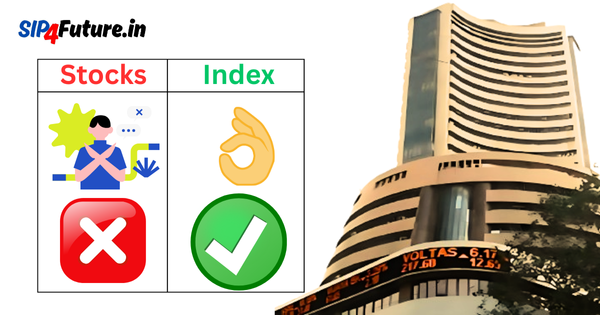Azad Engineering Ltd. (AZAD), a Hyderabad-based precision engineering firm, has solidified its position as a key player in the global power generation supply chain with a landmark $53.5 million (₹452.48 crore) six-year contract with GE Vernova’s Steam Power GMBH. Signed on May 5, 2025, this deal, running through 2030, involves the manufacture and supply of complex rotating and stationary airfoils for nuclear, industrial, and thermal power industries. The agreement not only strengthens Azad Engineering’s strategic partnership with GE Vernova but also underscores India’s growing role in high-precision manufacturing for the global energy sector. With AZAD’s stock price on the National Stock Exchange (NSE) climbing 3.69% to ₹1608.40 as of May 5, 2025, the market has responded positively to this development.
This article dives into the details of the contract, its implications for Azad Engineering’s growth, the broader power sector, and the factors influencing AZAD’s stock performance. We’ll also explore how government policies, global market trends, and sector dynamics are shaping the company’s trajectory, alongside a look at future price targets and historical returns.
What Does the GE Vernova Contract Mean for Azad Engineering?
A Strategic Partnership Strengthened
The $53.5 million agreement with GE Vernova, a global leader in power generation equipment, marks a significant milestone in Azad Engineering’s decade-long relationship with the company, which began in 2013. The contract focuses on supplying highly engineered airfoils—critical components in nuclear, industrial, and thermal power turbines. These components are manufactured at Azad’s newly inaugurated lean manufacturing facility in Tunikibollaram, Hyderabad, a 7,600-square-meter plant designed to meet GE Vernova’s global demand. According to a Moneycontrol report, the facility integrates cutting-edge technology and lean manufacturing principles, enabling Azad to produce approximately 100,000 blades annually.
This deal follows another high-profile contract with Japan’s Mitsubishi Heavy Industries in November 2024, valued at $82.89 million (₹700 crore), highlighting Azad’s growing reputation as a trusted supplier to global industrial giants. The GE Vernova contract is expected to significantly boost Azad’s revenue stream, with analysts estimating it could contribute to a 35% compounded annual growth rate (CAGR) in sales over the next few years, as noted in posts on X.
Financial Implications
The contract, valued at ₹452.48 crore, is substantial when compared to Azad’s trailing twelve-month (TTM) sales of ₹423 crore, as reported on X. This deal alone could nearly double the company’s annual revenue, reinforcing its financial stability and market capitalization, which stood at ₹10,017.27 crore on the NSE as of May 2, 2025. Azad’s strong financial performance in Q3 FY25, with a 35.1% year-on-year revenue increase to ₹1,204.84 crore and a 41.2% rise in net profit to ₹237.2 crore, further supports its ability to execute large-scale contracts efficiently.
| Financial Metrics (Q3 FY25) | Amount (₹ Crore) | YoY Growth (%) |
|---|---|---|
| Revenue | 1,204.84 | 35.1% |
| Net Profit (PAT) | 237.2 | 41.2% |
| EBITDA | 365.36 | 44.3% |
| EBITDA Margin (%) | 30.32% | +1.96% |
The contract’s long-term nature provides revenue visibility through 2030, reducing exposure to market volatility and strengthening investor confidence. Azad’s ability to maintain high gross margins (over 80%, comparable to software or pharmaceutical firms) positions it as a high-value player in the precision engineering space.
How Is Azad Engineering Positioned in the Power Sector?
A Key Player in Precision Engineering
Azad Engineering specializes in manufacturing high-precision components for the energy, aerospace, defense, and oil and gas sectors. Its expertise in producing complex airfoils for power turbines aligns with the growing global demand for efficient and sustainable energy solutions. The company’s portfolio of over 1,400 parts and components, as noted in an X post, showcases its versatility and technical prowess. Azad’s partnerships with global OEMs (original equipment manufacturers) like GE Vernova and Mitsubishi Heavy Industries underscore its role in supporting critical infrastructure worldwide.
The power sector, in particular, is undergoing a transformation driven by the need for cleaner energy and enhanced efficiency. Azad’s airfoils are integral to advanced nuclear, industrial, and thermal power turbines, which are designed to meet stringent environmental and performance standards. According to a Business Standard report, the global power industry is bracing for challenges such as supply chain disruptions and rising costs due to tariffs, yet companies like Azad are well-positioned to capitalize on the increasing demand for gas turbines and electrification technologies.
Impact of Government Policies
India’s government has played a pivotal role in fostering the growth of domestic manufacturing firms like Azad Engineering. Initiatives such as Make in India and the Atmanirbhar Bharat campaign have encouraged precision engineering companies to expand their capabilities and compete globally. The Ministry of Commerce and Industry has promoted policies to reduce import dependency and boost exports, directly benefiting firms like Azad that supply critical components to international markets.
Additionally, India’s defense budget for FY25, with a capital outlay of ₹1.8 trillion (up 12.9% from FY24), has indirectly supported Azad’s growth. As noted in an NDTV Profit article, Azad is among ICICI Securities’ top picks in the defense sector, alongside Solar Industries and PTC Industries. While the GE Vernova contract focuses on the power sector, Azad’s diversified portfolio across defense and energy enhances its resilience to sector-specific fluctuations.
What Factors Are Driving AZAD’s Stock Performance?
NSE Performance and Market Sentiment
As of May 5, 2025, AZAD’s stock price on the NSE stood at ₹1608.40, reflecting a 3.69% increase following the GE Vernova contract announcement. The stock has shown resilience despite broader market volatility, with a 52-week high of ₹2,080.00 and a low of ₹1,128.40. The positive market response aligns with analyst sentiment, with reports from CNBC TV18 highlighting the deal’s potential to enhance Azad’s order book, which has already surpassed ₹6,000 crore.
The broader NSE and BSE indices have experienced mixed performance in recent weeks. On May 2, 2025, the Sensex closed at 80,501.99, up 0.32%, while the Nifty gained 0.05% to 24,346.70, according to Moneycontrol. However, sectors like oil and gas have outperformed, while metals faced pressure, indicating selective investor interest. Azad’s focus on precision engineering and its diversified sector exposure have insulated it from some of these sectoral challenges.
Global Market Scenario
The global power industry is navigating a complex landscape shaped by geopolitical tensions, tariffs, and the transition to renewable energy. GE Vernova, Azad’s partner, reported a strong Q1 FY25, with revenue beating estimates due to robust demand in its power and electrification units, as per Yahoo Finance. However, the company flagged tariff-related costs of $300–$400 million, which could impact supply chains. Azad’s ability to manufacture high-precision components locally in India mitigates some of these risks, positioning it as a cost-effective supplier for global OEMs.
The increasing global demand for gas turbines, driven by rising power needs, further supports Azad’s growth prospects. A Susquehanna report estimates that GE Vernova could achieve an 8% revenue CAGR from 2024 to 2027, with a $120 billion backlog providing long-term visibility. As a key supplier, Azad is poised to benefit from this growth.
| Global Power Industry Trends | Impact on Azad Engineering |
|---|---|
| Rising demand for gas turbines | Increased orders for airfoils |
| Tariff-related cost pressures | Local manufacturing advantage |
| Shift to sustainable energy | Demand for efficient turbines |
| Supply chain disruptions | Strategic partnerships mitigate risks |
When Will Azad Engineering’s Growth Accelerate?
Facility Expansion and Capacity Growth
Azad’s lean manufacturing facility, inaugurated on April 29, 2025, is a critical driver of its growth. The 7,600-square-meter plant, integrated with the company’s Centre of Excellence and Innovation in Hyderabad, employs over 180 skilled professionals, with plans to add hundreds more, according to The Hindu. The facility’s capacity to produce 100,000 blades annually aligns with Azad’s commitments to GE Vernova and other global clients.
New capacities are expected to come online in FY26, enabling Azad to scale production and meet its order book demands. Analysts, as noted in X posts, project that these expansions could sustain Azad’s 35% revenue growth trajectory, supported by its high EBITDA margins of approximately 35%.
Sectoral Tailwinds
The power sector’s growth is underpinned by global energy demand, which is projected to rise as economies recover from inflationary pressures. India’s focus on renewable and nuclear energy, as outlined in the Ministry of Power policies, complements Azad’s expertise in manufacturing components for advanced turbines. Additionally, the defense sector’s push for self-sufficiency, with the Indian Army achieving 88% self-reliance in ammunition production, creates cross-sector opportunities for Azad’s precision engineering capabilities.
What Are the Risks and Challenges?
While Azad Engineering’s outlook is positive, several risks could impact its trajectory. Global supply chain disruptions, exacerbated by tariffs and geopolitical tensions, pose challenges for the power industry. GE Vernova’s exposure to tariff-related costs, as mentioned earlier, could indirectly affect Azad’s margins if cost pressures are passed down the supply chain. Additionally, the precision engineering sector is capital-intensive, requiring continuous investment in technology and skilled labor.
Market volatility, as seen in the NSE and BSE’s mixed performance in April 2025, could also influence investor sentiment. On April 25, 2025, the Sensex fell 1,100 points, and the Nifty dropped below 24,000, driven by selling pressure in media, metal, and PSU stocks, per Amar Ujala. While Azad’s stock has remained relatively stable, broader market corrections could impact its valuation.
Future Price Targets and Historical Returns
Analyst Price Targets
Analysts are optimistic about Azad Engineering’s stock, driven by its strong order book, diversified portfolio, and strategic partnerships. Below are price targets from leading research institutes as of May 2025:
| Research Institute | Target Price (₹) | Recommendation |
|---|---|---|
| ICICI Securities | 2,200 | Buy |
| Prabhudas Lilladher | 2,050 | Accumulate |
| Motilal Oswal | 2,150 | Buy |
These targets suggest a potential upside of 27–37% from the current price of ₹1608.40, reflecting confidence in Azad’s growth prospects. The company’s order book, valued at over ₹6,000 crore, and its ability to secure high-value contracts with global OEMs underpin these projections.
Historical Returns
Azad Engineering’s stock has delivered robust returns since its listing on the NSE. Over the past year, the stock gained approximately 42%, outperforming the Nifty 50’s 20% return. Since its 52-week low of ₹1,128.40 on April 7, 2025, the stock has risen 42.5%, reflecting strong investor confidence.
| Time Period | Return (%) |
|---|---|
| 1 Year | 42% |
| 6 Months | 28% |
| 3 Months | 15% |
Conclusion
Azad Engineering’s $53.5 million contract with GE Vernova is a transformative development that reinforces its position as a leader in precision engineering. By supplying critical airfoils for the global power industry, Azad is capitalizing on rising energy demand, government support for domestic manufacturing, and strategic partnerships with industry giants. Its stock performance on the NSE, robust financials, and expanding production capacity signal a bright future, despite challenges like global supply chain risks and market volatility.
With analyst price targets suggesting significant upside and a strong historical performance, Azad Engineering remains a compelling investment opportunity. However, investors should stay mindful of external factors such as tariffs and sectoral dynamics when evaluating its long-term potential.
Disclaimer: The information provided in this article is for educational purposes only and should not be considered financial or investment advice. Stock market investments are subject to risks, and past performance is not indicative of future results. Always consult a qualified financial advisor before making investment decisions.




